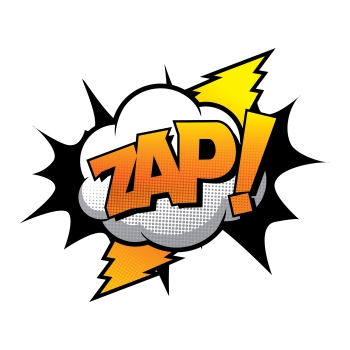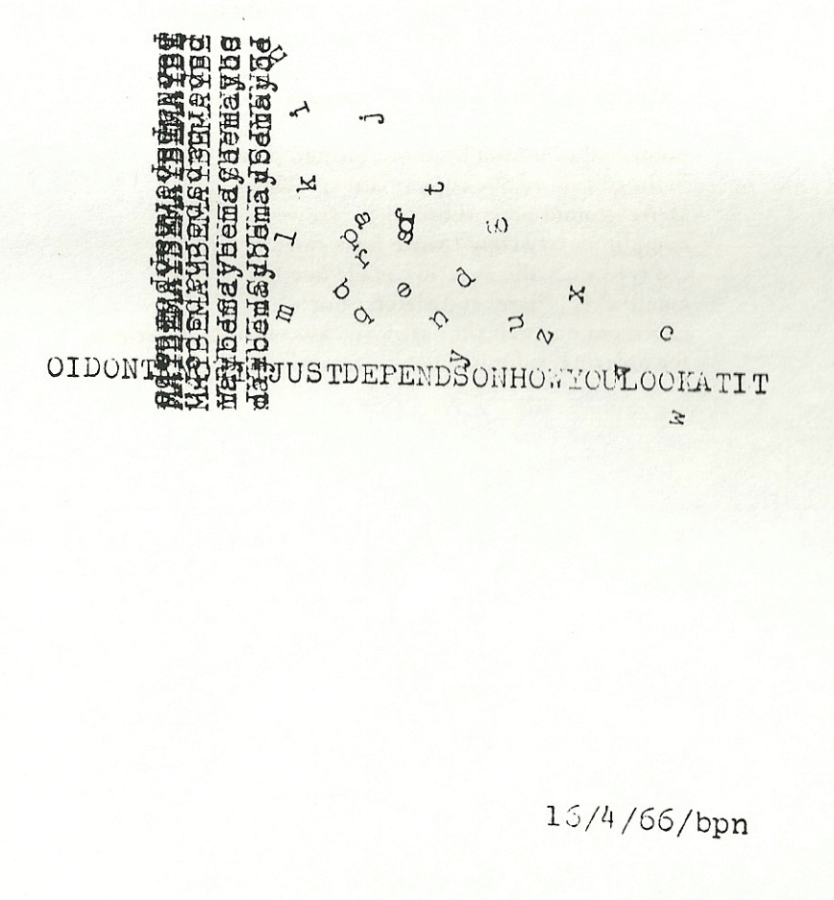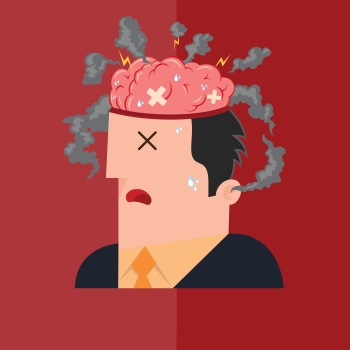Thu, 26 January 2017
You’re an attentive person and you care about people. But no matter what, the names you encounter completely slip your mind. And it happens in a flash. In one ear and out the other. Zap! It’s not just the names of people either. We’re talking about the names of:
… and even adjectives derived from proper names.
The List Goes On And On!
The question is … Why is information like this so darned difficult to remember? Well, you’re in luck. Although some of the reasons may shock you, today you’re going to learn everything you need to know about exactly why proper names of all kinds of thing challenge your memory. And as we go along, we’ll solve the problem so that names become much easier for you to remember.
Why The Meaning Of Names Fuels The Fire In Your Brain
At the most basic level, some names are easier to remember simply because they mean something as opposed to meaning nothing. For example, The Great Wall of China and the Berlin Wall are less challenging to remember than Ostkreuz and Shun Yi for most people because the names themselves come soaked in meaning. But if you hit a name cold with no base line of familiarity … It slides out of your grip like sand. Certain names also enter your memory at a younger age than others. Bugs Bunny, Marvin the Martian and Donald Duck all hold special favor in my memory because I’ve been encountering them for years. But in the John Grisham novel I’m reading right now, I needed to deliberately go out of my way to remember the names of the characters. Names like Troy and Nate are so bland, there’s little for the mind to grab onto. Mnemonics to the rescue.
How Authors Trick Your Brain |
Thu, 19 January 2017
You say to yourself, “I’ll just Google it.” Then you do. Get the goods. Move on. Only problem is … Next time you need the info … Thanks to Digital Amnesia …
It’s Gone!
Honestly, this condition called “Digital Amnesia” or “Google Amnesia” … stinks. Not only do you have a fine brain humming along in your skull … There are also a gazillion good reasons why you should be using it properly. Yes, properly. Even if you really can just look stuff up online. Because here’s the VERY good news: This year is the best year ever to use your memory at the highest possible level. And this is the year you’re going to make it happen, even if battles with net neutrality are starting to make the Internet we’ve come to love look like an endangered species. Here’s how:
You Can’t Annihilate A Problem You Haven’t Defined
It’s fun to throw around cool terms like “The Google Effect” and “Digital Dependence.” But until you’ve spent some time defining the monster, you’ll have a hard time setting it on fire. Or at least using your Magnetic torches to herd it out of the village. That said … what exactly is “Digital Amnesia”? Back in 2015, the Internet security company Kaspersky Lab put out an interesting report on the matter. You really should read it. To condense the report for you, Digital Amnesia occurs whenever your mind draws a blank on information you’ve stored on a device you trust. And as the report suggests, this outcome isn’t always a bad thing. For example, do you really need to remember the thousands of website addresses you’ve bookedmarked (and never visited again)?
Heavens No!
But that doesn’t mean you’re off the hook. Also included is information like the phone numbers of family members and friends. And the reality is that by not remembering them anymore, we’re endangering lives as we weaken our brains. Seriously. Without knowing the numbers of your loved ones, what would you do in an emergency if your phone wasn’t working? Ask a good Samaritan if he remembers your spouse’s number? No way, Jose. That’s your job. And you’ve got all the tools you need to get all kinds of simple number strings done when you use the Major Method.
How To Suck The Life Out Of Half Your Brain
Ever heard of “deskilling”? It basically means that you become less capable over time because you’re no longer using certain skills. And that can only lead to bad outcomes: * A destroyed brain But you’re probably asking: How exactly does having Google and your devices remember everything for you destroy your brain? Simple. When you develop dependence on technology, the areas of your brain responsible for memory start to decay. Just like the muscles in your body would do if you stopped walking.
The Truth About Deskilling Your Brain
No, deskilling the muscles of your memory won’t necessarily happen to you overnight. But one day you’ll wake up and … Bam! You Can Barely Remember A Thing! And it gets worse. Because memory has a sibling. Concentration. And as long as you have the Internet at your fingertips, you don’t even bother using your concentration to try and access things you might actually have in your memory.
How To Put A Barrier Between Need And Action
Instead of instantly searching for information you already know, pause for a second. Give your memory a bit of space. Ask and you might just receive. But when you push it away and go straight to the search engines, you’re deskilling your memory every time. And that means you’re also damaging your concentration. The good news is that you can improve focus fast with these tips, but there will be more work to be done.
Starve The Brain To Rebuild The Brain
Yes, I’m talking about destroying digital amnesia by going on an information diet. But wait! you protest. I don’t want to miss out on – Miss out on what? More fake news of the impending apocalypse? Come close, my friend. I’ll show you exactly how to take a powerful, memory-boosting digital detox so you can seriously improve your entire life in the process.
Stop Letting The Internet Push You Around
Here’s a little secret for you: I have never once “allowed push notifications.” So far, I don’t think I’ve missed out on anything of any interest. I could be horribly wrong about that, but I recommend you never accept notifications of any kind in your life that you don’t control. By being in control of when you’re disrupted, you automatically improve your ability to concentrate.
Fight Digital Amnesia Like A Magnetic Jedi
For a real Jedi Mind Trick memory exercise, try setting a notification with a positive message for 12:03 p.m. every day. Then work on remembering and reminding yourself that the notification comes at that time. It’s tough, but doable. Your mind really can track time and remind itself to remember. (For more cool Mind Tricks like these, check out my post on brain exercises.)
Put Your Devices In The Dog House
Virginia Woolf famously wrote that writers need their own rooms to create in without disruption. Well, all humans need their own place to sleep without their machines. Problem is, so many people use their devices as alarm clocks. This sad fact means that they’re checking their notifications and messages before even stepping out of bed. That’s no way to build a better brain. Instead, put your laptops and smartphones out in a hallway closet, kitchen or completely other room. If you need something to wake you up, use an old fashioned analog clock or one of those fancy lamps that slowly turns on over time. That gives you the effect of waking up with the sun and gives you a great dose of light that will contribute great things to your health.
Use Airplane Mode Without Fear
It’s no secret that I write almost every episode of the Magnetic Memory Method Podcast on my iPhone. But people ask me all the time, How on earth do you do it? There’s actually a long answer coming out in a new training I’m putting out, but the fast and dirty response is: Airplane mode. I concentrate like there’s no tomorrow when writing because Airplane Mode prevents anything and everything from contacting my iPhone. And since all Push Notifications have been disabled, it’s just me, my words and the music. Same things go for when I’m using The Big Five Of Language Learning in combination with my Pimsleur Memory Technique: There’s nothing to interrupt me as I exercise my memory. And that means that my concentration muscles grow at the same time. Remember this simple equation:
Exercising Your Memory = |
Thu, 12 January 2017
And let’s face it: The amount of material entrepreneurs need to learn can be downright discouraging. Just to stand a chance of “making it” requires so much know-how that a lot of people give up. Here’s the good news: You don’t have to give up on your entrepreneurial dreams. You can learn and remember everything you need to know. And you can recall it all with ease. But as they say in the entrepreneurial world, a lot of success comes from first knowing your “why.” That’s why in this post I’m going to talk about the 5 biggest reasons entrepreneurs need memory techniques.
Don’t Discount Any Of These!
Each is important, and you’ll find that the Magnetic Memory Method covers each. If you haven’t already taken the free course I’ve got for you, grab the memory kit by subscribing above and get ready for an amazing memory boost that will impressive the pants off you and everyone you know.
1. Not Being Able To Remember Numbers |
The Magnetic Memory Method Podcast

Categories
generalMemory Improvement Tools
Memory Method Tips
Brain Exercises for Memory Improvement
Memory Improvement Case Studies
Podcast
Guest Post
Memory Palace Tactics
Practical Memory Techniques
Uncategorized
Improve Memory Q&A
Archives
AprilMarch
February
January
December
November
October
September
August
July
June
May
April
March
February
January
December
November
October
September
August
July
June
May
April
March
February
January
December
November
October
September
August
July
June
May
April
March
February
January
December
November
October
September
August
July
June
May
April
March
February
January
December
November
October
September
August
June
May
April
March
February
January
December
November
October
September
August
July
June
May
April
March
February
January
December
November
October
September
August
July
June
May
April
March
February
January
December
November
October
September
August
July
June
May
April
March
February
January
December
November
October
September
August
July
June
May
April
March
February
January
December
November
October
September
August
July
June
May
April
March
February
January
December
November
September
| S | M | T | W | T | F | S |
|---|---|---|---|---|---|---|
| 1 | 2 | 3 | 4 | 5 | 6 | 7 |
| 8 | 9 | 10 | 11 | 12 | 13 | 14 |
| 15 | 16 | 17 | 18 | 19 | 20 | 21 |
| 22 | 23 | 24 | 25 | 26 | 27 | 28 |
| 29 | 30 | 31 | ||||
Syndication

 Annoying, isn’t it?
Annoying, isn’t it?
 Annoying, isn’t it?
Annoying, isn’t it?
 Entrepreneurs need a ton of skills to achieve their goals.
Entrepreneurs need a ton of skills to achieve their goals.

